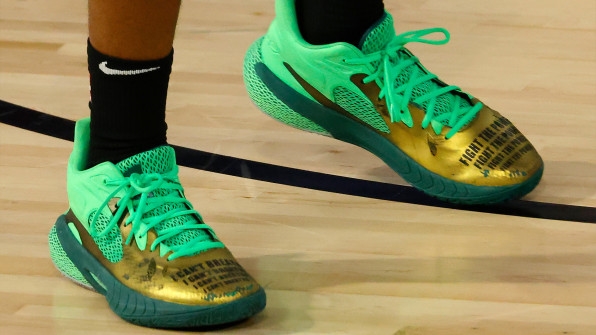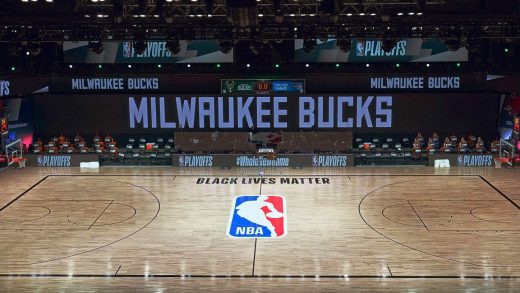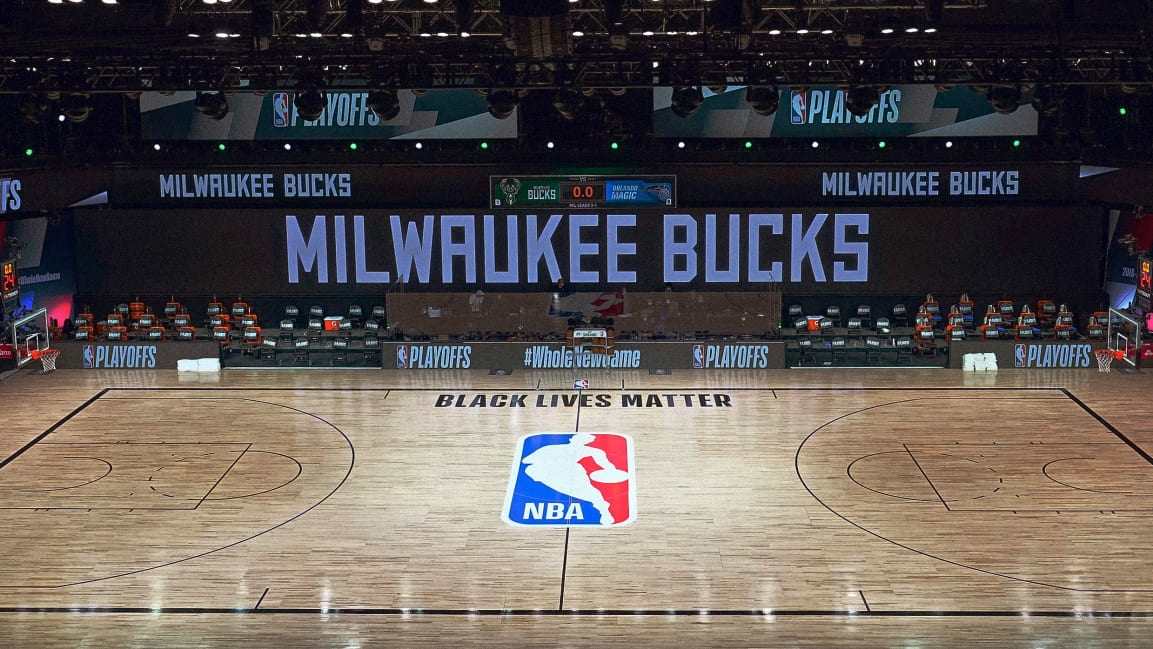Jacob Blake, Chris Paul, and the hidden power of the NBA
Among the blessings that NBA players possess and most mortals lack—lots of money, little body fat—here’s another that was highlighted this week: They belong to a union.
As teams abandoned the hardwood Wednesday to focus on how best to respond to the police shooting of Jacob Blake, they knew where to turn for guidance: the National Basketball Players Association.
On Thursday, the players agreed to continue with their season, reportedly at the urging of their union leaders, Oklahoma City Thunder star Chris Paul and the Miami Heat’s Andre Iguodala, who persuaded them that they will have more leverage to battle deep-seated racism and push for change if they don’t walk out.
There are, of course, extremely unusual aspects to the situation at Walt Disney World in Florida, where the NBA has maintained a “bubble” to shield athletes, coaches, staff, and media from the coronavirus. For starters, pro basketball players are not typical workers; the league’s average annual salary is more than $6.5 million. The fight they are taking up is over broader social concerns, not their own wages or working conditions. And despite the prospect of a huge financial hit, team owners and management have been supportive of the players’ actions, which technically began as a wildcat strike by those on the Milwaukee Bucks.
Still, the basic point shouldn’t be overlooked: The players were able to mobilize quickly and take a stand, in large measure, because they are organized.
Very few others are, however. A mere 6% of private-sector workers in the United States today are part of a union—a position of weakness that has translated into stagnant wages and shrunken benefits across the American labor force. (Add in government workers, and the number goes up to 10%.)
“It’s incredibly sad,” says Gina Glantz, a political strategist who served as senior adviser to the president of the Service Employees International Union and who also ran the 2000 presidential campaign of Bill Bradley—himself a one-time NBA player. “It’s very hard to achieve economic justice if workers don’t have collective voice and power.”
This reality has become all the more pronounced amid the present health crisis. Because of insufficient labor laws, the Economic Policy Institute declared in a report issued this week, “working people, particularly low-wage workers—who are disproportionately women and workers of color—have largely borne the costs of the pandemic.”
“While providing the ‘essential’ services we rely on, these workers have been forced to work without protective gear, have no access to paid sick leave, and when workers have spoken up about health and safety concerns they have been fired,” the analysis added. “Clearly, a system that allows this dynamic must be reformed.”
It used to be different. In 1953—the year before the National Basketball Players Association was formed—the portion of private-sector employees in the U.S. who carried a union card hit an all-time high: just shy of 36%. It would remain over 25% through 1975, a level large enough not only to positively impact the pay, health coverage, and retirement security of those who were union members but also to lift the compensation of those in nonunion companies, which had to compete to attract and retain workers and often wanted to avoid being organized themselves.
No single development can explain the steady decline of labor in the decades since. The shift from manufacturing to service work, the rise of globalization, and strategic missteps by union leaders have each played a role.

[Photo: Mike Ehrmann/Getty Images]
Yet there is ample evidence that one factor, above all, is to blame for the fall of unions: a fierce and relentless effort by businesses to bust them, abetted by their political allies in Washington and in so-called right-to-work states.
When it comes to turning back union organizers, “companies will use any and all means they can get away with,” says Larry Beeferman, a fellow at Harvard Law School’s Labor and Worklife Program. Many executives have demonstrated that they’ll even violate the law to thwart collective bargaining.
What’s most stunning about this fervent opposition is that it flies in the face of what a growing number of workers want. In fact, polling shows that nearly half of nonunionized employees would now join a union if they had the opportunity to do so—up sharply from 25 years ago.
“Given the choice, people would join unions in droves,” says John Logan, a professor of labor and employment studies at San Francisco State University.
This isn’t surprising. Studies find—and many workers seem to intuitively understand—that those who are in a union have higher incomes and greater access to important benefits than those who aren’t in a union.
Some have looked at what has transpired in the NBA and hope that workers everywhere will now be inspired to come together and, when necessary, withhold their labor until they get a fair shake from their employer.
“Though it is easier for the boss to replace you or me at work than it is to replace an NBA player, it is hard for any boss anywhere to replace everyone,” the labor reporter Hamilton Nolan wrote this week. “It’s true that NBA players have power because the bosses can’t dunk. But the bosses don’t want to clean the toilets either.”
I myself am less hopeful—at least in the short-term. As the Economic Policy Institute noted, U.S. labor law is weak, and it has only gotten weaker under the Trump administration.
Many worker advocates believe that rather than try to shore up the old model of collective bargaining, it would be smarter to start fresh. Some of the most compelling ideas being touted are to place worker representatives on corporate boards and to mandate that agreements be negotiated with entire industry sectors, as is the practice in Europe, rather than on a firm-by-firm basis.
This kind of bold agenda makes terrific sense to me. Indeed, at this point, it seems to be the only way to restore a better balance between corporate power and worker power in America.
But getting there will require overcoming the all-out resistance of those who’ve built the current system and are prospering from the way things are. They aren’t going to surrender easily.
In the meantime, those who go to work by putting on an NBA uniform will remain outliers. And most of the rest of us will be left on our own whenever there is a need to take on our employer—the economic equivalent of playing one-on-one against LeBron James, with our hands tied behind our back.
(20)



